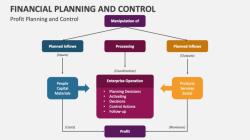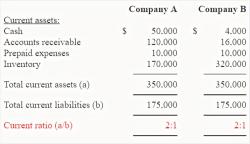What are the duties of a senior financial analyst?
A Senior Financial Analyst plays a key role in a company's financial planning, analysis, and decision-making processes. Their responsibilities are more extensive and often more complex compared to junior or entry-level financial analysts. Here are the typical duties and responsibilities of a Senior Financial Analyst:
1. Financial Planning and Forecasting:
- Develop and manage financial models and forecasts to support budgeting, long-term planning, and decision-making.
- Provide insights into revenue projections, cost trends, and financial performance.
2. Financial Analysis:
- Analyze financial statements, including income statements, balance sheets, and cash flow statements, to assess the company's financial health and performance.
- Conduct variance analysis to compare actual results against budgeted or forecasted figures.
3. Investment Analysis:
- Evaluate investment opportunities, mergers, acquisitions, and capital expenditure projects.
- Perform financial due diligence and assess the potential return on investment.
4. Reporting and Presentations:
- Prepare and present financial reports, analyses, and recommendations to senior management, executives, and stakeholders.
- Create clear and concise financial presentations for decision-makers.
5. Cost Analysis:
- Analyze and control costs across various departments or business units.
- Identify cost-saving opportunities and efficiency improvements.
6. Pricing Strategies:
- Collaborate with marketing and sales teams to develop pricing strategies and models.
- Assess the impact of pricing changes on profitability.
7. Financial Modeling:
- Build and maintain complex financial models to support strategic planning and decision-making.
- Perform sensitivity and scenario analysis to assess potential outcomes.
8. Risk Management:
- Identify financial risks and recommend risk mitigation strategies.
- Monitor market trends, economic indicators, and industry risks.
9. Data Analysis and Business Intelligence:
- Utilize data analytics tools and software to extract insights from financial and operational data.
- Assist in the development of key performance indicators (KPIs) and dashboards.
10. Budget Management:- Manage and oversee the budgeting process, working with department heads to set financial targets and track performance.- Monitor budget variances and propose corrective actions.
11. Compliance and Regulations:- Ensure financial compliance with accounting standards, tax laws, and regulatory requirements.- Stay updated on changes in financial regulations and implement necessary adjustments.
12. Strategic Planning:- Collaborate with senior leadership to develop and execute financial strategies that align with the company's goals and objectives.- Provide financial insights to support strategic decision-making.
13. Team Leadership and Training:- Mentor and provide guidance to junior financial analysts.- Assist in recruiting and training new team members.
14. Ad Hoc Analysis:- Perform ad hoc financial analysis and special projects as needed by senior management.
15. Communication and Collaboration:- Work closely with various departments, including finance, accounting, operations, and marketing, to gather data and insights.- Communicate financial results and recommendations effectively to non-financial stakeholders.
A Senior Financial Analyst's role is critical in helping organizations make informed financial decisions, manage resources efficiently, and drive growth. They are expected to have a deep understanding of financial principles, strong analytical skills, and the ability to communicate complex financial information in a clear and actionable manner. Additionally, senior financial analysts often contribute to strategic planning and play a pivotal role in the financial success of the company.
Senior financial analysts are responsible for a wide range of tasks, including:
- Financial analysis: Senior financial analysts develop and use financial models to analyze financial data and trends. They also identify and assess risks, and develop recommendations to improve financial performance.
- Financial reporting: Senior financial analysts prepare and present financial reports to senior management and stakeholders. These reports provide insights into the company's financial performance and help to inform decision-making.
- Financial planning and budgeting: Senior financial analysts develop and implement financial plans and budgets. They also track and monitor financial performance to ensure that the company is meeting its goals.
- Project management: Senior financial analysts may also be involved in managing financial aspects of projects. This includes developing project budgets, tracking project costs, and reporting on project financial performance.
- Mentoring and training: Senior financial analysts may also be responsible for mentoring and training junior financial analysts. This helps to ensure that the company has a pipeline of qualified financial professionals.
In addition to these core duties, senior financial analysts may also be involved in a variety of other tasks, such as:
- Strategic planning: Senior financial analysts may work with senior management to develop and implement strategic plans. This includes identifying and assessing strategic opportunities and risks, and developing financial projections.
- Mergers and acquisitions: Senior financial analysts may be involved in mergers and acquisitions transactions. This includes conducting financial due diligence, developing financial models to assess the value of a potential acquisition, and negotiating the financial terms of the transaction.
- Investor relations: Senior financial analysts may also be involved in investor relations. This includes communicating with investors about the company's financial performance and outlook.
Senior financial analysts play a vital role in many organizations. They use their skills and experience to help companies make informed financial decisions and achieve their financial goals.
Here are some tips for success as a senior financial analyst:
- Develop your technical skills: Senior financial analysts need to have a strong understanding of accounting, finance, and economics. There are a number of ways to develop your technical skills, such as taking courses, reading books and articles, and attending conferences.
- Gain experience: Experience is essential for success in the senior financial analyst role. You can gain experience by working as a financial analyst or associate financial analyst. You can also gain experience by volunteering your financial skills to non-profit organizations.
- Network: Networking is a great way to learn about new opportunities and connect with other financial professionals. Attend industry events and connect with people on LinkedIn.
- Stay up-to-date: The financial industry is constantly changing, so it is important for senior financial analysts to stay up-to-date on the latest trends and developments. You can stay up-to-date by reading industry publications, attending conferences, and taking online courses.
By developing your skills and experience, you can increase your chances of success as a senior financial analyst.












